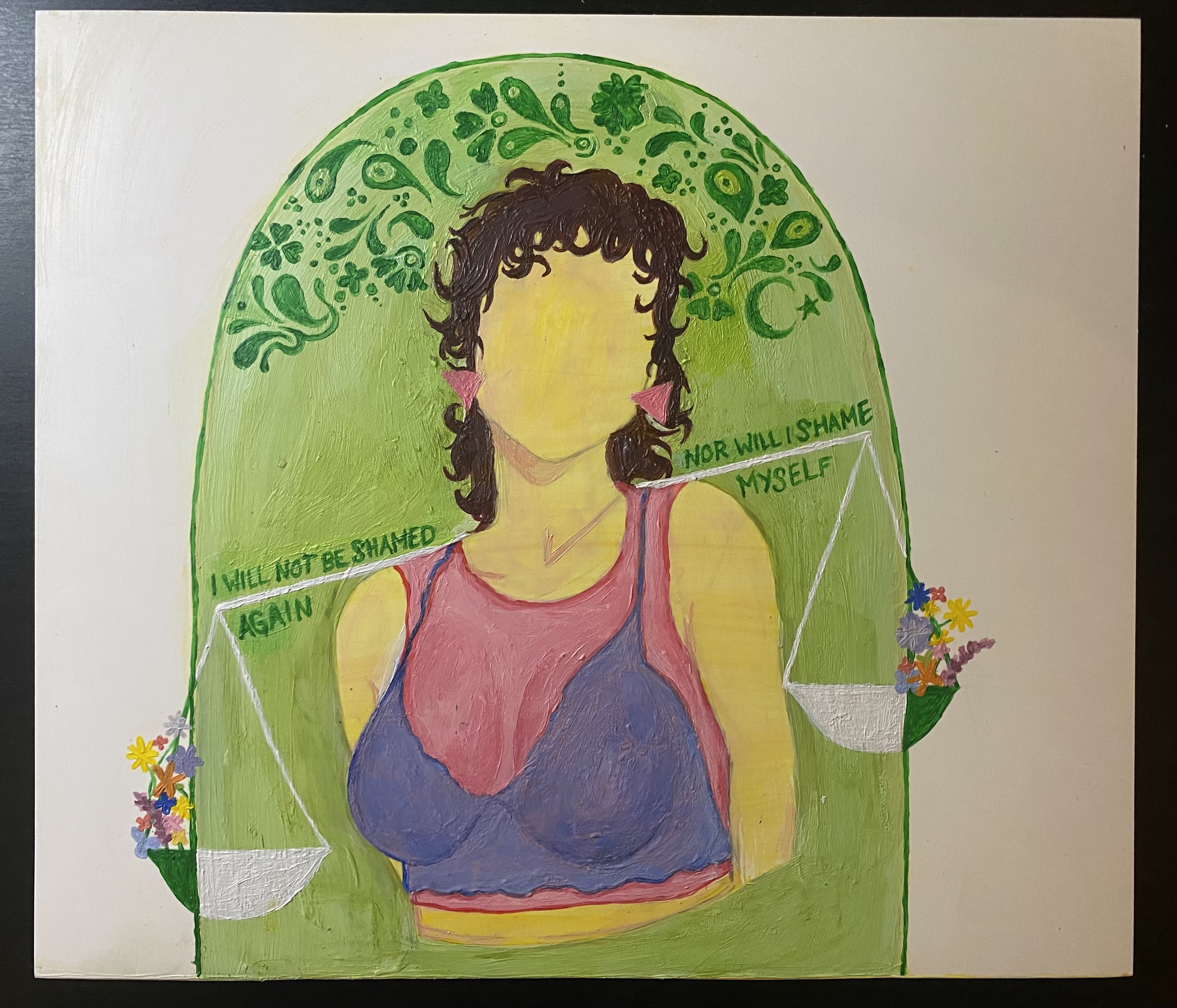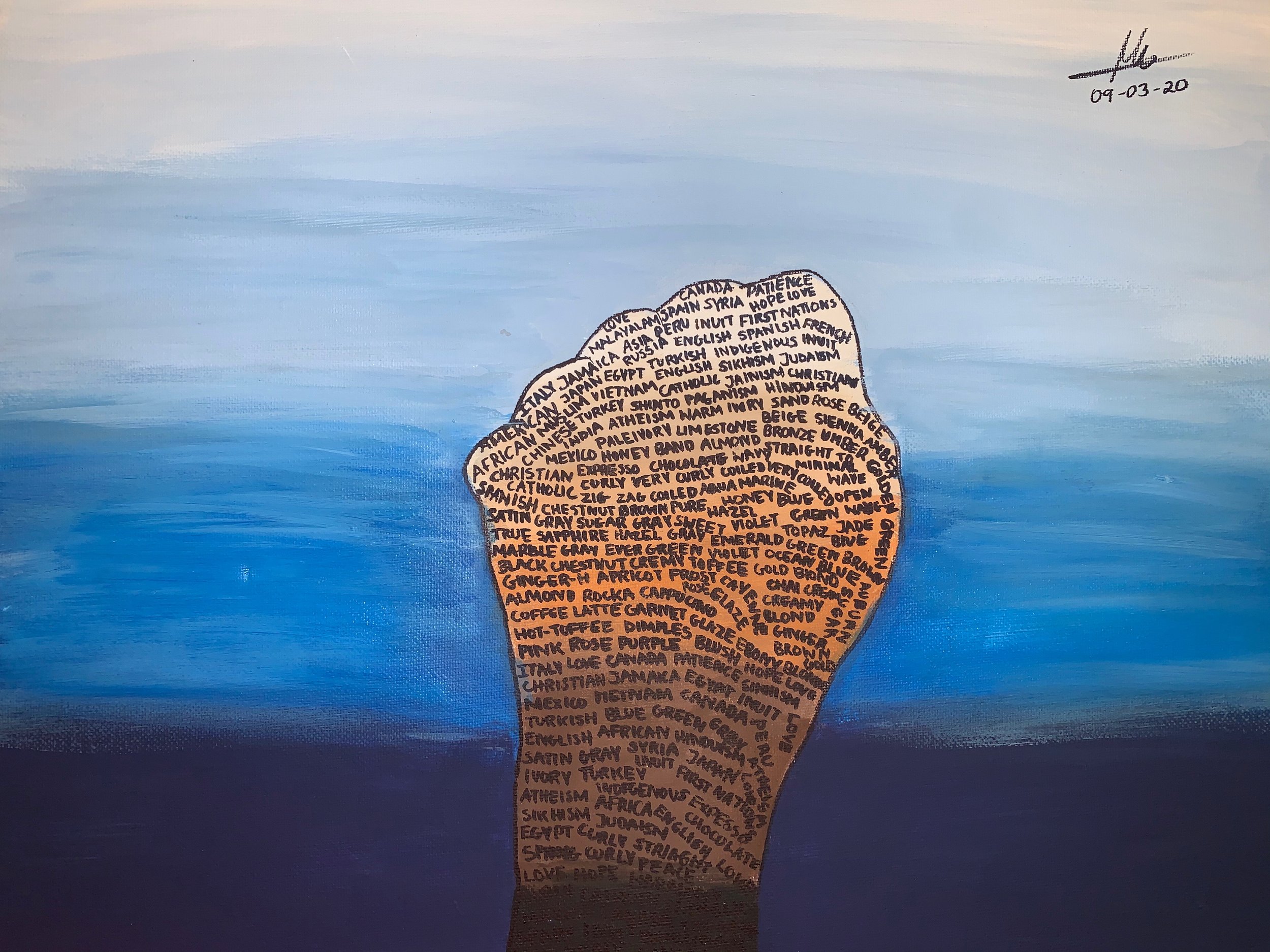How do we attend to the delicate task of teaching and conceptualizing decolonial and transnational feminisms within institutions with colonial histories? How can we teach/learn gender and sexuality in or of the “Middle East”/ “West Asia”? What/whose knowledges are shared? What is or should be front staged in our classrooms and what should be kept silent or back staged?
Pedagogy
“To build a community in the classroom is to recognize the value of each voice.”
— bell hooks, Teaching to Transgress
I have learned through lived experiences that we all have a foundational sense of our place in the world and the ways in which this place impacts our lives and the lives of others.
I believe that teaching is journey and a mutual process. I have learned and continue to learn as much from my students that (I hope) they have learned from me. With the permission of my students I have developed an archive of reflections, paintings, art work, stories, and poetry that is done by my students at the end of our journeys/classes.
These beautiful pieces (displayed here) are reflections on our emotional-analytical co-travelling across diverse landscapes of Gender and Feminist studies to communicate the insights we have mutually gained from the courses.
I strive, therefore, to create an accessible and active learning environment that disseminates knowledge in a creative, instructive, and relevant way, which not only teaches students content but also connects it to their lived experience and the contemporary social-political upheavals affecting them and their loved ones.
It is through acknowledging these multiple locations that we can begin to learn, accept, critique, reject, discuss, and debate social and political issues. Hence, in both my research and teaching, life histories and experiences are valuable tools that allow for the construction of relationships to others, ideas, concepts, and theory.
I want my students to engage with and learn from the voices that are often silenced, back-staged and dismissed in academia. I want to impart my enthusiasm for stories and life narratives onto my students through story-telling, readings, and visual arts.
With the ongoing siege on the liberal arts—with its neoliberal, cost-benefit approach to higher-education— I see my role as opening up spaces for self-reflection and critical thinking and as a result, personal and academic growth. Hence, my teaching philosophy is one which situated and holistic; open, yet critical.
It is my goal to encourage students to ground themselves and reflect on their own experiences; to theorize and think critically; to challenge themselves intellectually and be unafraid to be challenged in respectful ways; and to always have a searching eye for experiences and voices that are hidden and under-represented.
Podcasts
Pedagogies of Hope
With a help of a SSHRC connection grant, I have initiated a collective called Pedagogies of Hope. Pedagogies of Hope is a community of scholars, artists and activists that practice pedagogies that transgress the boundaries of mainstream learning and teaching. Addressing challenges that students face post-pandemic, Pedagogies of Hope aims to support pedagogical innovation through a community knowledge exchange workshop.
Episodes
FEATURED GUEST APPEARANCES
Just Participation Podcast
The fifth episode of Just Participation concerns art-spaced social justice work and decolonizing our minds. Student host Zeynep Yilmaz interviews the researchers and practitioners Dr. Paola Ardiles Gamboa, Dr. Syrus Marcus, and Dr. Aytak Akbari-Dibavar. Each guest explores how to engage students with decision making through experimental, interactive, and progressive methods of learning. The projects by our guests have developed innovation, futurism, and postcolonialism through the fine arts and social activism.
Decentring the classroom and working together for a more equitable world often requires unlearning and relearning the stories that make ‘us’ and our politics.
Follow @poetics.of.silence on Instagram









![“Failing is something queers do and have always done exceptionally well; for queers failure can be a style […] or a way of life […] and it can stand against the grim scenarios of success that depends upon “trying and trying](https://images.squarespace-cdn.com/content/v1/645d5e2a0fe2f12b688881c9/1706581442178-ESTEA1QFWHY4YW2ZE6O7/image-asset.jpeg)


